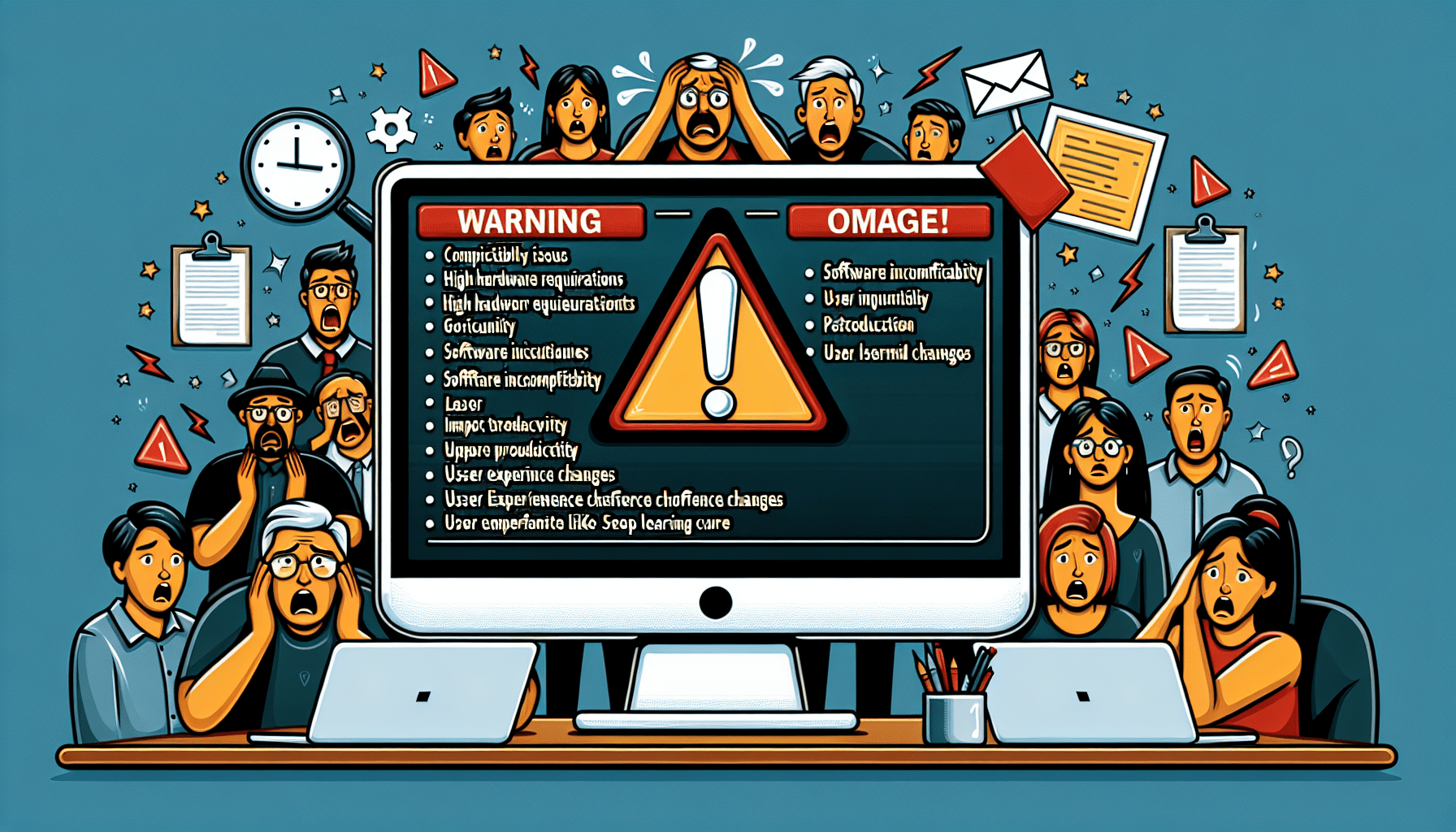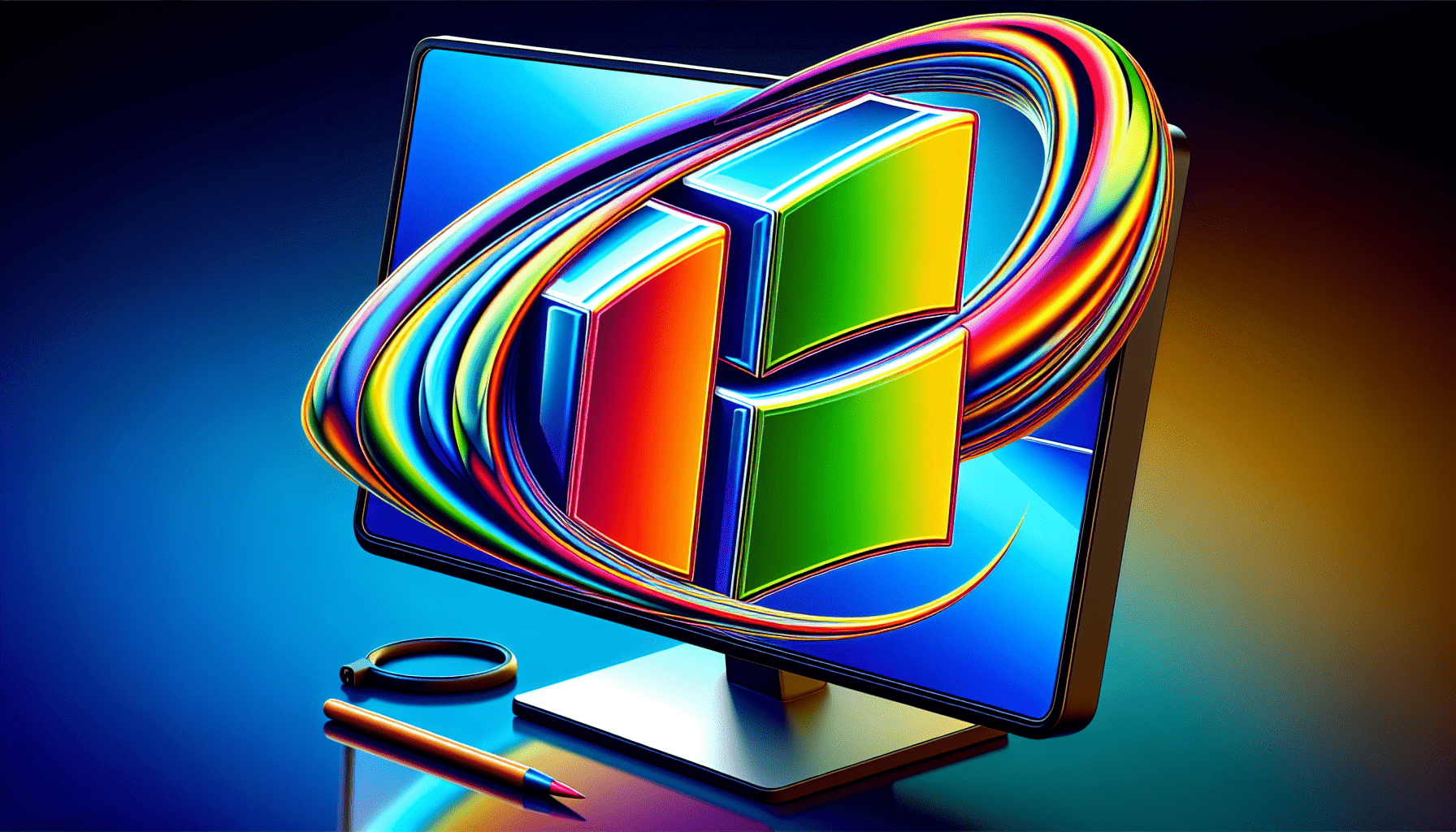







Cleaning your laptop screen may seem like a simple task, but using the wrong cleaner could potentially cause irreversible damage. The question on many people’s minds is whether or not it is safe to use glass cleaner on a laptop screen. In this article, we will explore the potential risks and benefits of using glass cleaner, as well as alternative methods for safely and effectively cleaning your laptop screen.
Understanding the Laptop Screen Material
Types of laptop screen surfaces
Laptop screens can come with various types of surfaces, each designed to provide a different viewing experience. The most common types include matte screens, glossy screens, and touchscreen displays. Matte screens have a non-reflective surface, reducing glare and providing a better experience in brightly lit environments. Glossy screens, on the other hand, have a smooth and reflective surface, offering vibrant colors and higher contrast. Touchscreen displays combine the functionality of a traditional laptop screen with the ability to interact with the screen using touch gestures.
How sensitive are laptop screens?
Laptop screens are generally more sensitive compared to other electronic devices. They consist of multiple layers, including a delicate glass panel, LCD or LED backlight, and a digitizer for touchscreens. These components are carefully calibrated to provide optimal performance and any damage or mishandling can result in expensive repairs or even render the screen unusable. It’s important to take special care when cleaning laptop screens to avoid any damage.
Components of Glass Cleaner
What is in a typical glass cleaner?
Glass cleaners typically contain a combination of solvents, surfactants, and water. Solvents, such as isopropyl alcohol or ammonia, help dissolve dirt and oils on the surface of the glass. Surfactants help break down grime and make it easier to remove. Water acts as a carrier for the other ingredients and aids in the overall cleaning process. It’s important to note that not all glass cleaners are suitable for cleaning laptop screens due to their specific composition.
Harmful chemicals in glass cleaners
Some glass cleaners may contain harmful chemicals that can damage laptop screens. Ammonia, for example, can cause the anti-glare coating on matte screens to deteriorate over time. Additionally, certain chemicals can be abrasive and scratch the delicate surface of the screen. It’s crucial to choose a glass cleaner specifically formulated for electronic devices or opt for alternative cleaning methods.

Effect of Glass Cleaner on Laptop Screens
Does glass cleaner damage laptop screens?
Using glass cleaner directly on a laptop screen can potentially damage it. The chemicals in the cleaner can strip off the protective coatings on the screen and lead to discoloration or other visual defects. Moreover, if the liquid seeps into the edges of the screen or gets into the laptop’s internals, it can cause electrical damage and even render the device inoperable. It is always recommended to avoid using glass cleaners on laptop screens.
Short term and long term effects
The immediate effect of using glass cleaner on a laptop screen may not always be noticeable. However, the long-term consequences can be detrimental. Over time, the protective coatings on the screen may degrade, leading to decreased visibility and compromised image quality. The delicate layers of the screen can also become more susceptible to scratches, resulting in a permanently damaged display. It’s essential to consider the potential long-term effects when deciding how to clean your laptop screen.
Manufacturer Guidelines on Laptop Screen Cleaning
What do laptop manufacturers recommend?
Laptop manufacturers often provide specific guidelines on how to clean their screens without causing damage. These guidelines are usually outlined in the user manual or on the manufacturer’s website. They typically recommend using a soft, lint-free cloth dampened with water or a mild, non-abrasive cleaning solution specifically designed for electronic devices. Following these recommendations helps ensure that the screen remains in optimal condition and avoids any potential warranty issues.
Violating the warranty agreement with improper cleaning methods
Using glass cleaner or any other cleaning method that is not recommended by the laptop manufacturer can potentially void the warranty. Manufacturers generally state that any damage resulting from improper cleaning methods is not covered under the warranty. It’s crucial to adhere to the manufacturer’s guidelines to maintain the warranty coverage in case any unforeseen issues arise with the laptop screen.

Professional Recommendations for Laptop Screen Cleaning
What do tech experts say about using glass cleaner?
Tech experts strongly advise against using glass cleaner on laptop screens. They emphasize the potential damage it can cause to the delicate coatings and components of the screen. Instead, they recommend using microfiber cloths and mild cleaning solutions specifically formulated for electronic devices. By following these recommendations, you can effectively clean your laptop screen without putting it at risk.
Safe practices for cleaning the laptop screen
To safely clean your laptop screen, start by turning off the device and disconnecting it from any power source. Gently wipe the screen using a microfiber cloth dampened with a mild cleaning solution or plain water. Avoid applying excessive pressure or using rough materials, as this can lead to scratches. It’s important to be gentle and patient when cleaning to ensure the screen remains in pristine condition.
Alternatives to Glass Cleaner for Laptop Screens
Commercial laptop screen cleaning products
There are numerous cleaning products available on the market specifically designed for laptop screens. These products often come in convenient spray bottles and are formulated to be safe for use on delicate electronic screens. They typically contain non-abrasive cleaning agents that effectively remove smudges, fingerprints, and other marks without causing any damage. When purchasing commercial laptop screen cleaning products, ensure they are specifically designed for electronic devices.
Homemade laptop screen cleaning solution
If you prefer to use a homemade cleaning solution, you can create a safe and effective one using simple household ingredients. Mix equal parts distilled water and white vinegar in a spray bottle. Gently shake the bottle to combine the ingredients and then spray a small amount onto a microfiber cloth. Use the damp cloth to clean the laptop screen, being cautious not to oversaturate it. The mild acidic properties of vinegar help remove smudges and dirt without harming the screen.

The Impact of Correct Cleaning Products On Screen Longevity
How using the right cleaner can extend the life of your screen
By using the correct cleaning products and methods, you can significantly extend the life of your laptop screen. Gentle cleaning solutions designed specifically for electronic screens help maintain the integrity of the protective coatings and prevent any damage that could compromise the display quality. Regularly cleaning your laptop screen using appropriate products removes dirt and grime, preventing them from accumulating and causing long-term harm.
The cost of neglect: potential repairs due to improper cleaning
Neglecting proper cleaning practices and using glass cleaner or other unsuitable cleaning methods can result in costly repairs or even the need for a screen replacement. Damaged protective coatings, scratches, or other defects caused by improper cleaning are not only visually distracting but can also impair the functionality of the laptop. By investing in the right cleaning products and taking the time to clean your laptop screen correctly, you can save yourself from potential repair expenses in the future.
Safe Cleaning Procedure for Laptop Screens
Procedures and precautions when cleaning
To clean your laptop screen safely, always start by turning off the device and unplugging it from any power source. This eliminates the risk of electrical damage and ensures your safety throughout the cleaning process. Use a gentle, lint-free cloth, such as a microfiber cloth, to wipe the screen in a circular motion. Avoid pressing too hard or using rough materials that could cause scratches. If needed, lightly dampen the cloth with a suitable cleaning solution or plain water, being careful not to oversaturate it.
What types of cloth to use for wiping?
Using the right type of cloth is crucial when cleaning a laptop screen. Microfiber cloths are highly recommended due to their soft and non-abrasive nature. They effectively attract and trap dust particles without scratching the delicate surface of the screen. It is best to avoid using regular paper towels, tissues, or abrasive materials such as rough fabrics or sponges, as these can leave behind fibers or cause scratches.
Frequent Laptop Screen Cleaning Mistakes
Over-spraying: a risk for laptop health
One common mistake when cleaning laptop screens is over-spraying cleaning solutions directly onto the screen. Excess moisture can seep into the edges of the screen or drip into the keyboard, potentially causing damage to the internal components. To avoid this, it is recommended to apply the cleaning solution onto a cloth and then gently wipe the screen. This ensures controlled application and minimizes the risk of liquid damage.
Relying solely on home remedies
Another mistake is relying solely on home remedies for cleaning laptop screens, such as using vinegar or other household cleaning agents. While some of these remedies may be effective, they can also be risky if not used correctly. Homemade solutions may contain ingredients that are too harsh for delicate screens, leading to damage. It is advisable to use commercially available cleaning products specifically formulated for electronics or follow the manufacturer’s recommended cleaning methods.
Health Implications Of Using Glass Cleaner On Laptop Screens
Potential risks for the user
Using glass cleaner on laptop screens can pose health risks to the user, primarily due to the potential inhalation of harmful chemicals. Many glass cleaners contain volatile organic compounds (VOCs) that can be released into the air during use. Inhaling these VOCs can cause respiratory irritation, headaches, and even more severe health issues with prolonged exposure. To ensure your safety, it is best to avoid using glass cleaner on laptop screens and opt for safer cleaning alternatives.
Environmentally-friendly cleaning alternatives
Aside from health risks, using glass cleaner also has environmental implications. Some glass cleaners contain chemicals that are harmful to aquatic life and can contribute to water pollution when improperly disposed of. By choosing environmentally-friendly cleaning alternatives, such as non-toxic and biodegradable screen cleaning solutions, you can help minimize your impact on the environment while still maintaining a clean and clear laptop screen.
In conclusion, cleaning your laptop screen requires special care and attention to avoid causing damage or compromising the screen’s longevity. Using glass cleaner on laptop screens is not recommended due to the potential harm it can cause to the delicate coatings and components. Instead, opt for mild solutions specifically formulated for electronic screens or consider homemade solutions using safe ingredients. By following the manufacturer’s guidelines and employing proper cleaning procedures, you can safely clean your laptop screen, extend its lifespan, and protect your investment.




